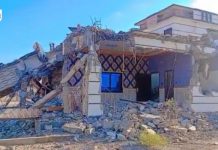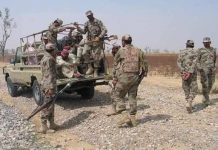On the evening of August 25th, the Baloch Liberation Army (BLA) launched Operation ‘Herof’ by seizing control of the highway at Gabad, near Jewani. Following this, the China-Pakistan Economic Corridor’s (CPEC) main route was blocked at Hironk, the Karachi-Quetta RCD Highway was taken over at Kalat, and the road connecting Balochistan to Punjab was controlled at Radasham. For twelve hours, the BLA maintained roadblocks on these major highways, effectively cutting off Balochistan’s connections to Sindh, Punjab, and Iran. During this period, railway bridges were destroyed, military posts were targeted, and in Lasbela, the Majeed Brigade of the BLA carried out a suicide attack on a military camp, resulting in a battle that lasted twenty hours, inflicting significant casualties on the Pakistani military.
Analysts familiar with the recent history of the Baloch liberation struggle have stated that Operation Herof is the BLA’s largest operation in the over two-decades-long independence movement in Balochistan. During the operation, key highways from Makran to Koh-e-Suleiman remained under the control of the BLA’s Majeed Brigade, STOS, and Fatah Squad for twelve hours.
In recent years, the BLA’s attacks on Chinese and Pakistani economic interests, coupled with Operation Herof, indicate that the BLA is advancing towards modernity. By adapting its strategies, the BLA has demonstrated its capability to plan and execute complex attacks that target significant military and economic objectives, in addition to traditional guerrilla warfare.
The BLA stated in its communique that Operation Herof was the first phase of preparations to regain control of Baloch land. From this, it can be inferred that the BLA intends to achieve even larger military objectives in the near future.
Regardless of the military losses, the BLA’s Operation Herof will lead to an increase in complex attacks in Balochistan’s liberation war. Baloch armed groups are enhancing their capabilities and strength, and the Pakistani military’s failure to prevent such a large-scale attack paves the way for even bigger operations than Operation Herof in the near future, potentially intensifying the Baloch liberation war.






























